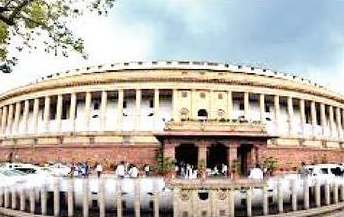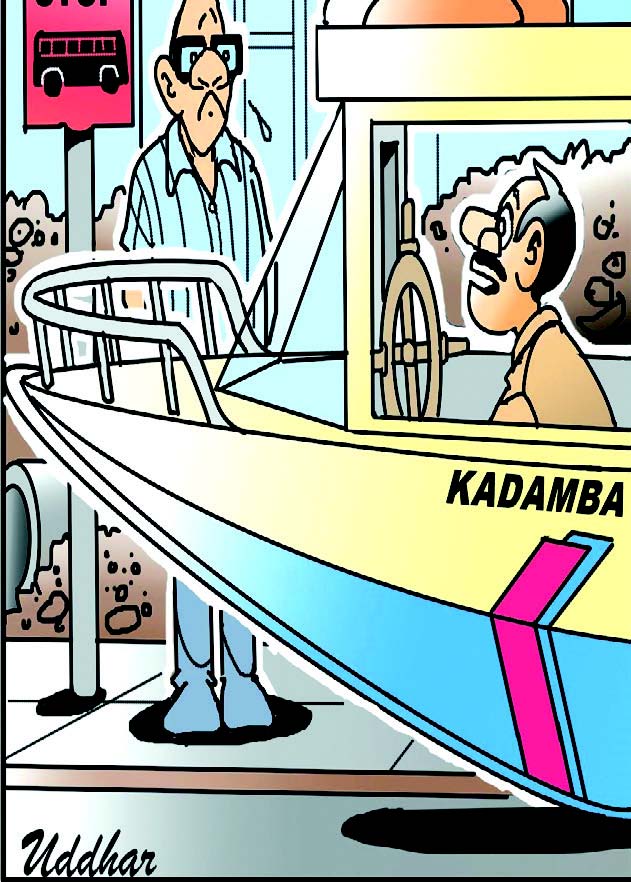
What is envisaged is redevelopment of the entire central vista and the government has a duty to consult citizens and accord the right to participate in a project of national importance. That’s what participatory democracy all about.
“The elected government is a repository of public faith in matters of development” said the Supreme Court, while green flagging the PM’s dream project of redesigning the administrative nerve centre of the country as planned by a Gujarat based architectural firm. Giving a carte blanche, the highest court stated ‘the government is entitled to commit errors or achieve successes in policy matters as long as constitutional principles are not violated in the process. It is not the court’s concern to enquire into the priorities of an elected government’.
The Central Vista project includes a new parliament house for 1224 MPs, a central secretariat, vice-president’s enclave and a new house for the PM at Rajpath. This grandiose extravaganza is aptly summed up by Ramchandra Guha “the Modi government’s redesign of New Delhi brings to mind not so much living Communist autocrats as it does some dead African despots. It is the sort of vanity project, designed to perpetuate the ruler’s immortality that Felix Houphouet-Boigny of the Ivory Coast and Jean Bédel-Bokassa of the Central African Republic once inflicted on their own countries.”
Across all times rulers built cities and edifices to make themselves immortal. Mohammed Bin Tughlak may be remembered for disastrous shifting of the capital to Daulatabad. Shah Jahan may be remembered as a great builder. Why only Pandit Nehru and his descendants be remembered by posterity? Nehru is seen as the maker of modern India. Laterite stones and cement may build edifices, not institutions. It is a healthy discussion, debate and arrival of reasoned decisions that nurture democratic institutions. Nehru is known for building institutions which nourished our democratic spirit and stood the test of time. They even withstood the onslaught against them by his daughter! How can that space where Nehru gave his ‘tryst with destiny’ speech remain as the country’s core democratic symbol and foremost parliamentary space at present?
Eager to create his own legacy, the PM is possessed by the plan to revamp the main boulevard of Delhi by spending Rs 20,000 cr despite economic recession like never before. The collapse of the health care system due to Covid-19 global pandemic has also not distracted the PM’s attention (Rs 8400 crores have already been spent on buying 2 aircraft, one for PM). The country is not clear as to how 1.3 billion people would be vaccinated.
The health minister has announced free vaccination only for three crore beneficiaries in the first phase. Even if there was no pandemic, the funds could be utilised in fixing the world’s most polluted capital city, where 80 die a day . Even before the corona pandemic the malnutrition of our children and our Hunger Index has put us in the pit at global stage.
There may be any number of reasons to upgrade our capital city by modernising the infrastructure but these are distress times. If Rs 20,000 cr are available they deserve to go to ameliorate the poor and vulnerable. People are bound to express their concern on this. The highest court says that’s not their concern! The central vista was less of a legalistic issue but in view of certain mandatory provisions being bypassed, it was believed to be the rule of law matter.
Somehow a belief has grown about that the courts shall deal with executive highhandedness at all times. Saying that it shall not even impose its own version of good governance upon the government in the name of rule of law, the highest court has cleared the air that clouded people’s expectations from it.
To have a new parliament house ready for the palladium jubilee celebrations of the independence is just vanity as poverty and loss of livelihood becomes endemic. A superstructure meant for country’s premier legislative & debating chamber ought to be with discussion and debate. The powerful dissent on public participation by Sanjiv Khanna J (he is from HR Khanna J stock) removed the sheen of the supreme court nod. The dissenting judge held the change in land use to be a serious infirmity both in substance and procedure, which the majority calls ‘minor modification’. There is no prior approval of the heritage conservation committee as mandated by law and the environmental clearance is not a reasoned one. Dissenting judge is loud and clear that what is envisaged is redevelopment of the entire central vista and the government has a duty to consult citizens and accord the right to participate in a project of national importance. That’s what participatory democracy all about. The dissenting view was only demanding implementation of participatory process existing in the law. But the majority held a different view that “public participation is not to supplant the discretion of the government or to retard development work. It is only for suggestions…. to sub serve public interest”. There is never a doubt over the power of the elected to decide what is in public interest. But what is mandated needs to be followed. It is strange that the highest court ignored that and sermonised the country on keeping faith in the elected. The country required better reasoning from the highest court. Now the worry is for those who have grown up believing that the highest court is the bulwark against executive high-handedness. The fear is the court’s approval of the executive entitled to err could be the new guiding principle for a long time. We live on hope….
(The writer is a practising Lawyer, senior faculty in law and a political analyst)
